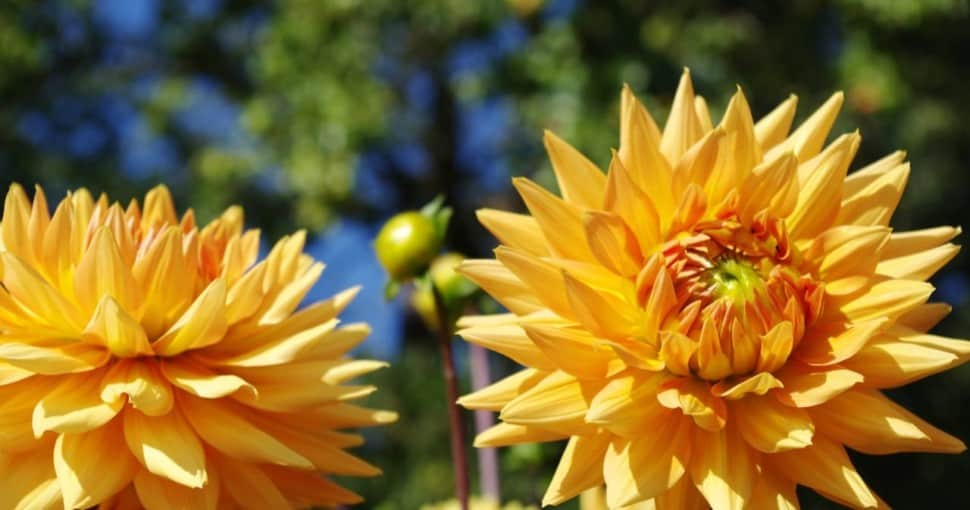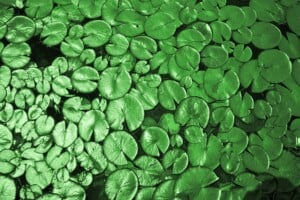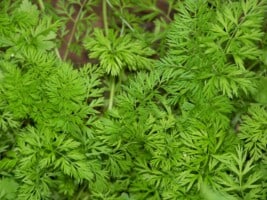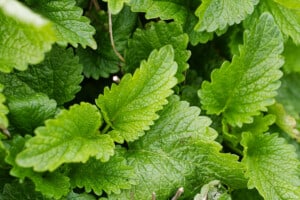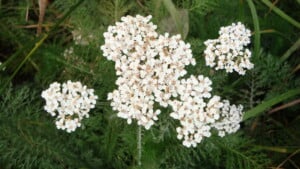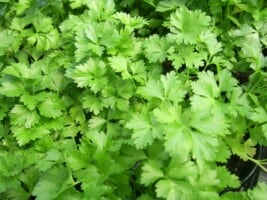Dahlias are growing in popularity in many different countries as they produce big and colorful blooms every year. The growth in this plant’s popularity can be worrisome for parents and animal owners alike, as Dahlias could be poisonous. So, is there anything you should be worried about with the Dahlia plant?
Contents
Dahlia plants are non-toxic to humans and are used in many different traditional meals across the world. However, Dahlia plants are mildly-toxic to dogs, cats, and other animals. Dahlias can cause many uncomfortable symptoms for your animals, even if your animals do not ingest the plant.
Are Dahlias Poisonous To Humans?
Dahlias are beautiful plants that boast colorful flowers in the spring, making these plants extremely popular in gardens, parks, and business centers around the world. The Dahlia is a genus of tuberous, bushy, herbaceous, perennial plants, meaning each Dahlia plant will live longer than three years.
As these plants are popular and are now seen in just about every garden on every street, you may be wondering if these plants are poisonous to humans or not. This can be a big concern, especially for anyone with small children who may accidentally ingest the plant, as it is grown around the neighborhood.
Thankfully, Dahlias are edible and are only toxic to humans if the plant is consumed in excess. Many people do not know that Dahlias are a close relative to Jerusalem artichokes and sunflowers, and you can consume their petals and their bulbs.
Dahlias are used worldwide in many different dishes, and the petals are used as a garnish to add a lovely splash of color and freshness to the meal.
You do need to keep in mind that the Dahlia plant’s leaves and tubers contain a compound called phototoxic polyacetylene. This compound can cause skin irritation when the plant is being handled in direct sunlight.
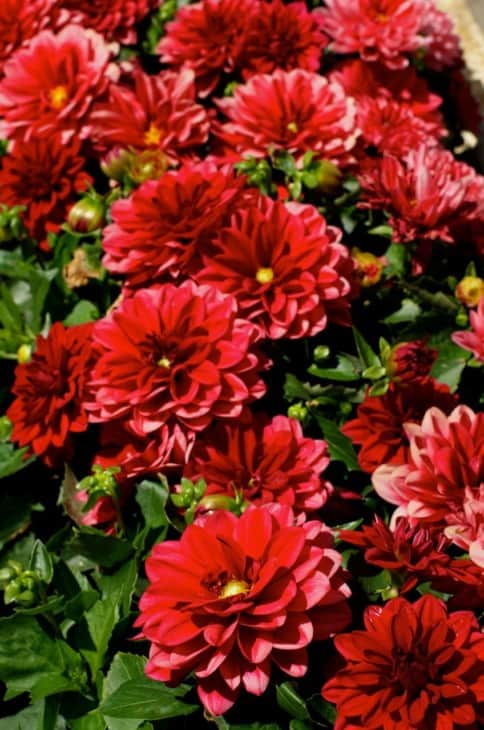
Another consideration that you need to keep in mind is what is sprayed onto the plant. It is not a good idea to buy a Dahlia plant from a nursery and immediately start eating the petals, as chemical pesticides may have been sprayed onto the plant, and these can cause adverse reactions when ingested.
If nothing was sprayed onto the Dahlia plant and you or your child consumes a petal or two, then you have nothing to fear.
Are Dahlias Poisonous To Dogs?
The growing number of Dahlia plants being planted around neighborhoods can also be concerning for dog owners, as these plants seem to be almost everywhere. Dahlia plants are also used in parks to make the park more inviting to the people that visit it.
The fact that Dahlias are growing in popularity can be troubling to many dog owners as numerous plants are toxic to dogs, with some plants even being deadly to dogs if they are ingested.
Not every plant that is used around certain neighborhoods and parks is researched properly before they are planted to see whether they are dog friendly or not.
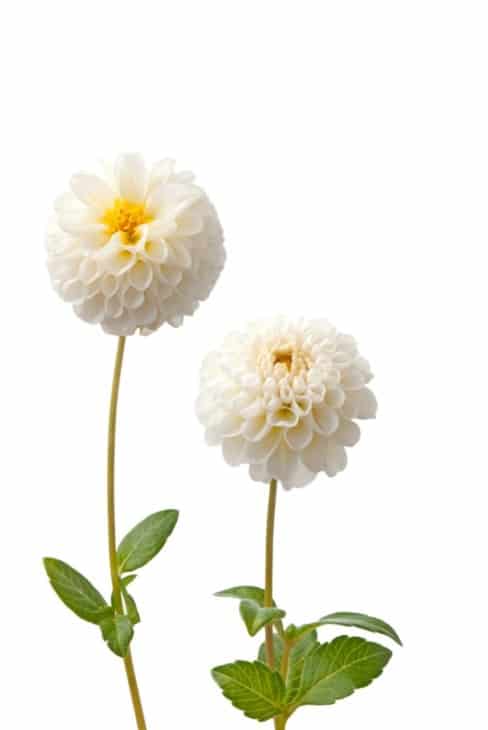
So, should you be concerned about your dog being around the Dahlia plant? Dahlia plants are mildly-toxic to dogs. Your dog can suffer some adverse reactions to the Dahlia plant; whether your dog ingests the plant or merely interacts with the plant’s leaves, your dog will be affected.
The compound phototoxic polyacetylene found in the plant’s leaves can cause skin irritation for dogs when the dog interacts with the plant, which can be extremely uncomfortable for your dog.
If your walking route or the dog park you frequent has Dahlia plants in them, you should try to avoid the plant or change your walking route or park entirely to ensure that your dog is safe.
Are Dahlias Poisonous To Cats?
Dahlias are becoming a popular plant and are springing up around cities and parks, which can be concerning for cat owners just as much as dog owners.
The number of Dahlias popping up around your home can be troubling, as many plants in the world are toxic to cats. Unfortunately, not everyone in your city or town will do their research to ensure these plants are safe for their neighborhood pets.
This can be extremely concerning for cat owners, especially as you have very little control over what your cat comes into contact with while they are on their travels outside your home. So, are your concerns for your cat around the Dahlia plant valid, or can your mind finally be calm about this situation?
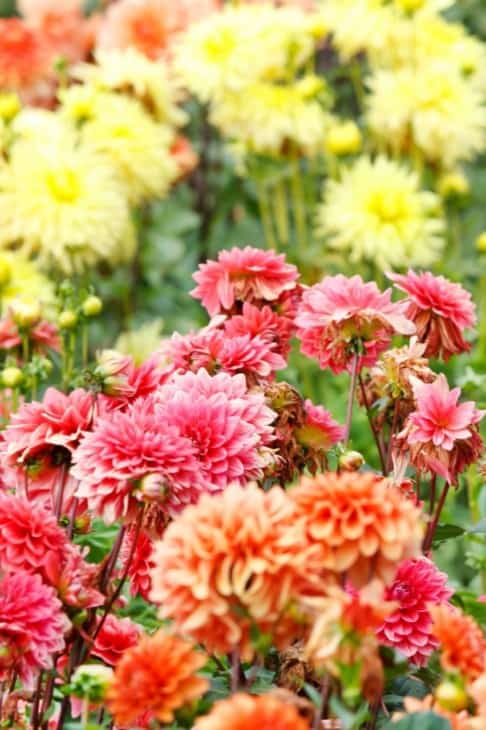
Unfortunately, your concerns are valid with your cat being exposed to the Dahlia plant, as they are mildly toxic to cats. Cats can experience the same skin irritation as dogs if they interact with the plant’s leaves, and cats can become ill if they ingest the plant.
So, you should try your best to keep your cat away from Dahlia plants as much as possible. This can be a difficult task as you don’t always have control over your cat’s whereabouts, but you need to try in order to help your cat avoid any uncomfortable symptoms.
Are Dahlias Poisonous To Livestock?
With the popularity of the Dahlia plant growing, it is not just domestic animal owners that are growing concerned for their animals, but people who have livestock are also worried about this plant and what it could do to their animals too.
Sadly, Dahlia plants are mildly toxic to most livestock animals, too, with the only exceptions being goats and some species of sheep. Most livestock will have the same skin irritation as dogs and cats if they interact with the plant, and they will fall ill if they ingest the plant.
What Are The Symptoms Of Dahlia Poisoning?
So, Dahlia plants are not toxic to humans but are mildly toxic to dogs, cats, and other animals, but what would happen if your animals were to ingest this plant?
Consuming Dahlia plants is not likely to kill your animals, but this can lead to unpleasant symptoms that make your animals uncomfortable. These symptoms include:
- Blisters on the skin
- Itching
- Irritation
- Mild dermatitis
- Rash
- Red, swollen patches on the skin that are painful
- Abdominal pain
- Mild gastrointestinal irritation
- Vomiting
- Diarrhea
- Dehydration if the diarrhea and vomiting is excessive
Dahlia plants are mildly-toxic to animals when it is ingested and when their leaves interact with the animals’ skin. It is vital that you keep your animals away from the Dahlia plant; after all, prevention is the best cure.

